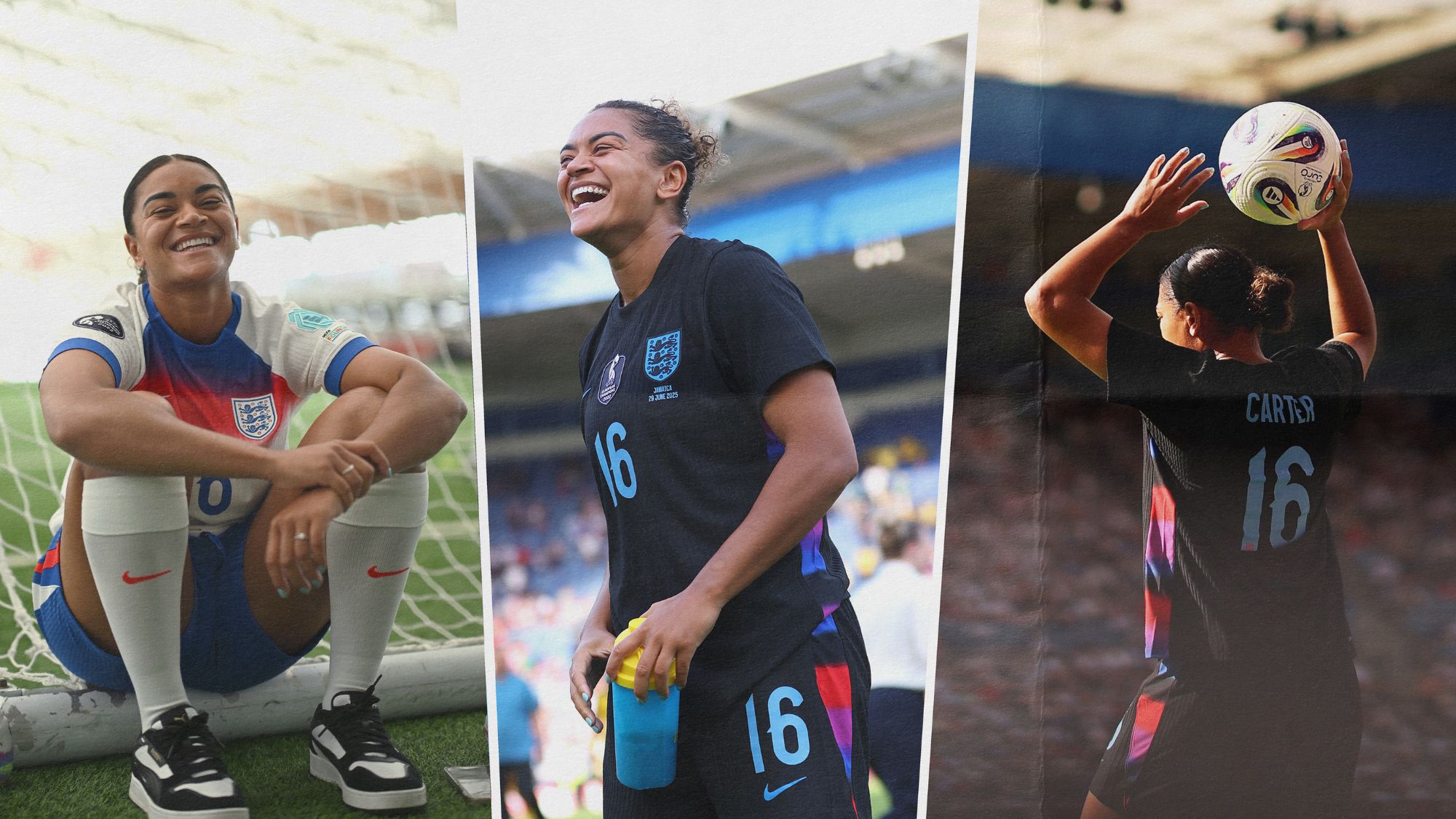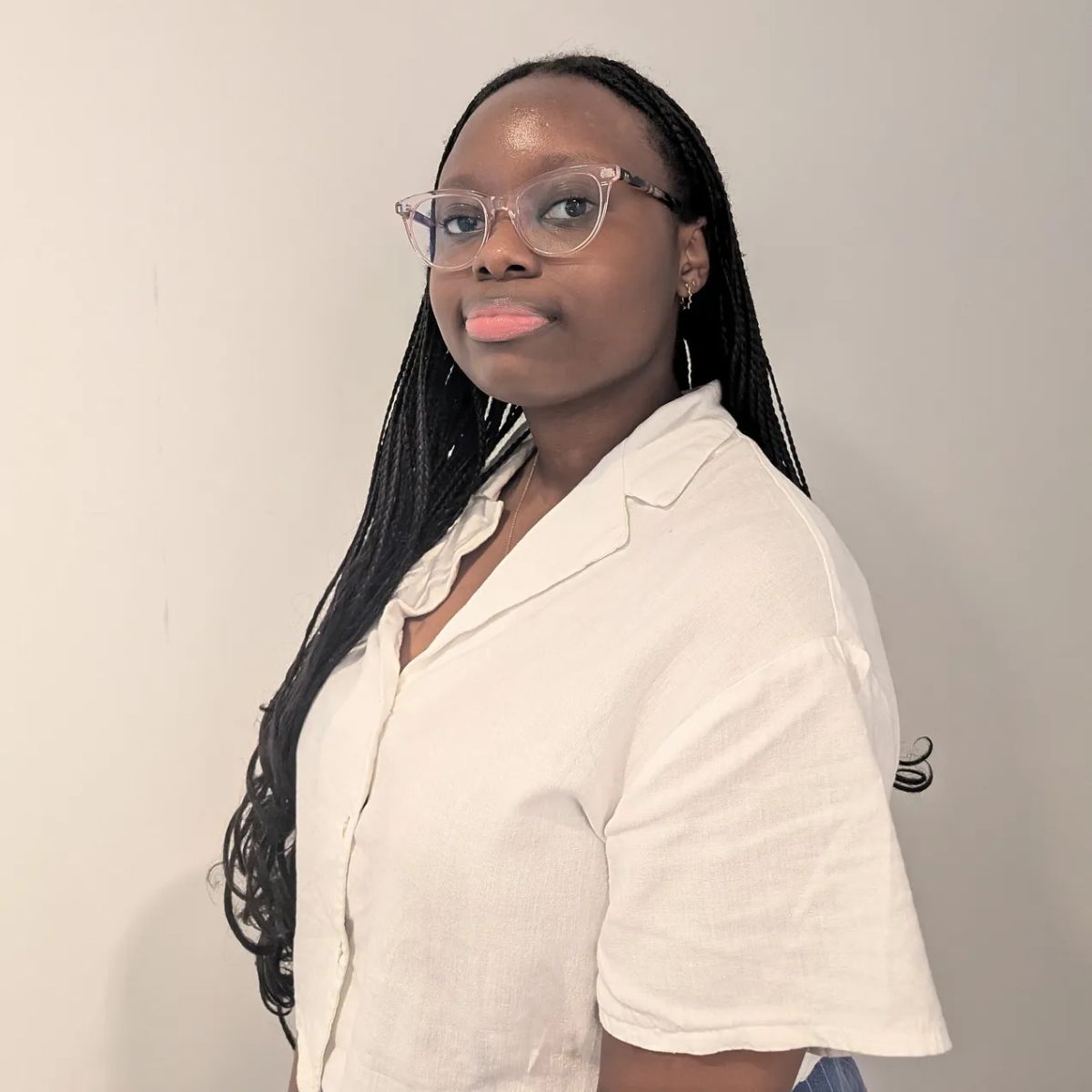The Racial Abuse Aimed At Jess Carter Is Undoubtedly Appalling - and Highlights A Worrying Trend In Women's Sport
As the sport has grown, so have the eyes on female footballers - and not all of them are looking on with kindness and excitement.


On Sunday, Lionesses defender Jess Carter posted a statement announcing she was stepping back from social media, citing an increase in racial abuse directed at her since the beginning of the UEFA Women's Euros this year.
“From the start of the tournament, I have experienced a lot of racial abuse. Whilst I feel every fan is entitled to their opinion on performance and result, I don’t agree or think that it’s okay to target someone’s appearance or race,” Carter wrote in a statement posted to her Instagram and X social media profiles.
Shortly after the pro footballer released her statement, the FA announced that there would be a police investigation, indicating the seriousness of the threats received by the player.
While it's incredibly disheartening to see this scale of abuse - especially given England’s success in making it to the semi-finals - the attacking of Black and Brown athletes is an unfortunately familiar pattern that we're seeing time and time again.
Women's football is often painted as non-toxic - but is it?
It'd be easy to focus on the irreputable misogyny female footballers face, but disingenuous to pretend that the women’s game does not have a racial problem. Women’s football is often painted as the non-toxic, positive alternative to the men’s game - it's framed as both family-friendly and inclusive.
Only last week, Sky News ran an article praising the "tribalism without toxicity" of female football fans. And while this may be true in many cases, there are also countless cases of Black and Brown players and fans experiencing racism.
While growth of the women's game has been widely praised as long overdue, as the sport has grown, so have the eyes on female footballers - and not all of them are looking on with kindness and excitement.
Celebrity news, beauty, fashion advice, and fascinating features, delivered straight to your inbox!
A post shared by Jess Carter (@_jesslcarter)
A photo posted by on
As the sport has grown, so have the eyes on female footballers - and not all of them are looking on with kindness and excitement
Black women are often the target of such hatred, and it feels as if the hatred is growing with each major women’s tournament. Pro footballers Jess Carter, Lauren James, Bunny Shaw, Daniela Caracas, and Taylor Hinds have all been vocal about the abuse they receive - abuse and harassment directed at them at games and online simply for doing their job.
Being in the public eye as a woman of colour is hard enough. But it seems that being a woman of colour who plays for a national team means that all of the team's mistakes are taken out on you. You are held responsible, and you are the one at fault.
Case in point: Kick it Out, an organisation founded in 1997 that works to challenge discrimination and encourage inclusive practices, saw the highest number of reports of racism to an anti-discrimination and inclusion charity in a single season from 2023 to 2024 (1332 in total). Their most recent study found that player-specific abuse had soared by 43 per cent year on year (up from 277 to 395), with reports sitting at over double the amount they received during the 2021/22 season.
Sadly, this is all clearly impacting the number of young girls taking up the sport, too. Research in May by Women in Sport found that 48% of Black girls fall out of love with sport in their teens because of issues such as racism, misogyny and inflexible sporting structures.
A post shared by Anita Asante (@neetz2)
A photo posted by on
Statements of solidarity without meaningful guardrails and a lack of consequence for trolls means the problem will only persist
The lack of diversity in women’s football teams has been a hot topic in recent years, with the England Women’s squad criticised for not having enough Black or Brown players. However, we shouldn't even be beginning to discuss increasing diversity if the players currently employed by the club aren't properly protected from both racial and misogynistic abuse.
Statements of solidarity without meaningful guardrails and a lack of consequence for trolls means that the problem will only persist. And meaningless gestures - like taking the knee or posting black squares on social media - may demonstrate solidarity, but clearly haven't worked. More needs to be done.
As a Black queer woman, I love watching women's football and the community you feel around women's sports. But I always worry for women of colour representing England on the national stage, as in my gut, I know it's only a matter of time until they'll be subject to racism.
I don't know what it'll take for women's football to address the ongoing issues. But Anita Assante, a former football player and now coach to England’s Under-23 squad, posted a statement on social media which summed up my feelings well. "I always get asked how we can solve racism, but as Black and Brown people, we don’t have access to the lever of power. We therefore don’t have the ability to dismantle the structures that uphold racism."
"Racism existed before social media, and it will exist afterwards," she shared. "Until action is taken seriously, it’s left to players and people in football to protect themselves.”
Her thoughts are echoed by many. An intersectional approach to increasing diversity means recognising that merely having more women in a place doesn't mean equality has truly been reached - and the whiteness of many queer spaces and women’s football spheres means that the experiences of Black and Brown women are often overlooked and ignored.
The euphoria that football is supposed to spark in fans - Black, Brown and White - is ruined if you're spending your game day worrying about the players or your own safety. Football is meant to be inclusive. It's meant to unite people. And it's meant to bring joy.
Which young black girl would like to represent her country on the world stage when the price of playing is receiving abuse with no sanction or consequences?
Change must begin now, while the country and the world watch.

Michaela Makusha (she/her) is a freelance journalist whose work focuses on online and offline culture and the ways in which this influences political and social life, especially for marginalised communities. You can find her work in The Guardian, The New World, The Observer, Glamour UK, Black Ballad and more.